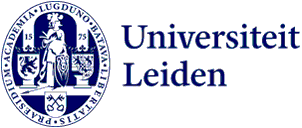
Leiden University starts dismissal procedure against professor on the grounds of unacceptable behaviour
A professor from Leiden University, together with a former employee (who is also the professor’s partner), has been guilty of long-term unacceptable and often transgressive behaviour in the form of abuse of power and manipulation. This behaviour led to a culture of fear among staff who were largely dependent on these individuals.
This is the conclusion of the Executive Board based on an investigation by an independent investigating committee from Leiden University. The committee began its investigation at the request of the Executive Board in autumn 2023 after the dean of the faculty in question had received several reports about socially unacceptable behaviour exhibited by the professor and their partner, a former employee of the university.
The investigating committee also deems it plausible that both academics breached academic integrity by arranging access for themselves to data belonging to other staff and monopolising data and access to it. It is also plausible that the two individuals appropriated research material from third parties, without having the required permission/permit. This behaviour also counts as a breach of academic integrity.
The Executive Board considers these behaviours that are deemed ‘plausible’ by the committee to be so serious that it is starting a procedure to terminate the professor’s employment contract as soon as possible. If this is upheld by the court, the employee in question will also be barred from using the title of professor and from supervising PhD candidates. Their partner will also no longer be welcome at the university. Since the start of the committee’s investigation, the professor has been suspended and both individuals have been denied access to the university.
Nineteen informants
In recent months, the independent investigating committee examined reports of unacceptable behaviour by the two academics towards students and staff as well as reports of breaches of academic integrity. These are mostly incidents that took place over some, if not many, years. In total 19 informants – including academics, PhD candidates, postdocs and students – made statements about unacceptable behaviour and breaches of academic integrity. The committee also heard various witnesses including current and former administrators, peers and experts.
Deeply shocked
The Executive Board is deeply shocked by the committee’s finding that serious misconduct could have persisted for so long. President Annetje Ottow says, ‘This has seriously harmed many people, and that affects us deeply. Our first concern is for the informants. Given that the professor in question has held administrative posts at the faculty in the past, it took a lot of courage to come forward. The committee also thinks it important that we work towards “healing” for those affected in the faculty and provide them with aftercare. So, our first and strongest concern is to help them and to bring about further culture change in the faculty.’
Ottow continues, ‘In addition, we as the Executive Board must learn lessons from this report because, according to the committee, signs were also missed in the past at the management level. How can we be even more alert? How can we prevent such unacceptable behaviour from happening again? We are already doing a lot to create a safe work environment but more will have to be done.’
Perverse incentives
The committee’s report shows, for example, that there are perverse incentives in the research system, says Ottow. ‘The committee points out, among other things, the great importance of acquiring research funding in competition with peers and the risks this entails. In that context, an unhealthy system can arise of power and dependence. As an academic, you can lose sight of boundaries. We need to look at that more broadly as well because it’s not just an issue in this faculty and at our institution.
‘We as the Executive Board have recently focused our efforts on leadership, team collaboration and more open dialogue with each other. So, not just correcting after the fact but working together proactively on a healthy work culture. This means focusing less on individual researchers’ successes and more on our teaching and relevance to society.’
Ottow concludes, ‘Good changes have already been set in motion at the faculty in question too. Under the leadership of the Faculty Board, several measures were taken some time ago to strengthen the organisation, in collaboration with the entire faculty community. The culture, how people behave towards each other, has also been addressed and improved. But it is clear that improvements still need to be made. We are determined to act on the committee’s recommendations.’
Recommendation: publish the report
The committee has advised the Executive Board to publish the full, (partially) anonymised investigation report. The committee considers this to be in the interest of the informants who must continue to do their work in a small discipline where unverifiable rumours can cause great harm to these informants if they are unable to defend themselves. In addition, publishing the full investigation report could contribute to the change process already underway at the faculty and university. Finally, there are lessons for universities to learn from this case, says the committee.
The Executive Board accepts this recommendation but, for the sake of due diligence, wants to give all concerned sufficient time to study the report first. The report containing the research committee’s recommendations will be published via the university website on 13 May 2024.
Update 13 May 2024: The report has been published on our site in English and Dutch and can be found here:
If, having read this article, you need to talk to someone and/or file a report, please contact your manager, the HR department and/or the confidential counsellor for your faculty or expertise centre.
